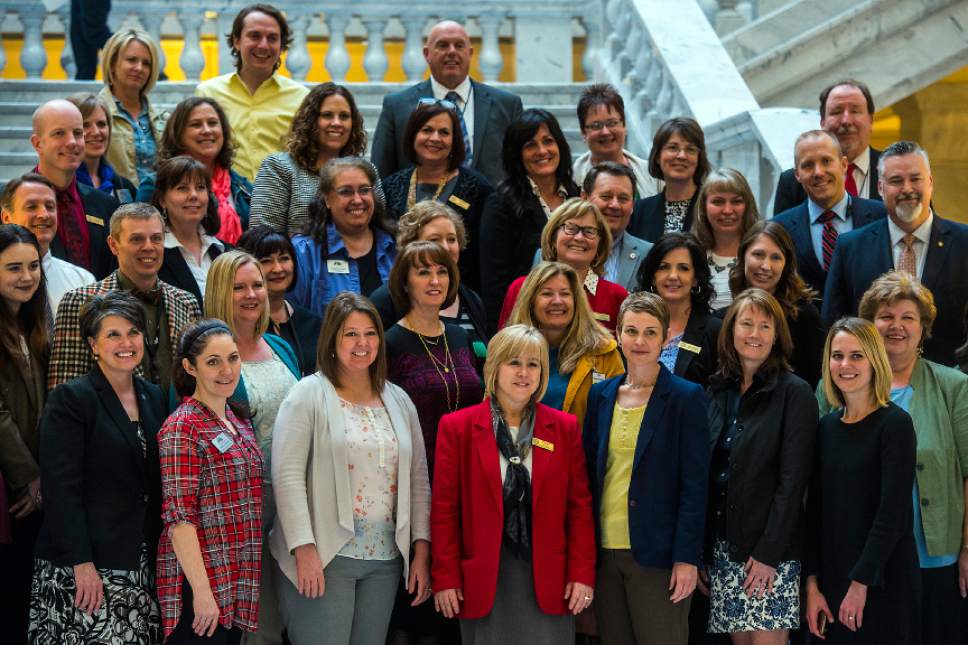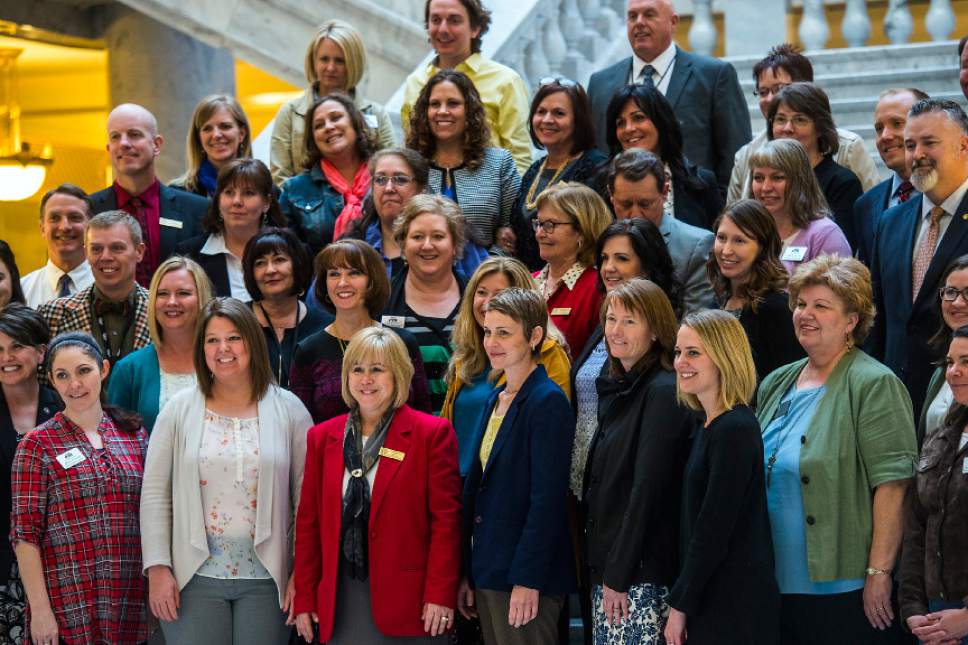This is an archived article that was published on sltrib.com in 2017, and information in the article may be outdated. It is provided only for personal research purposes and may not be reprinted.
The 2017 legislative session was boom and bust for education advocates on all sides of the ideological spectrum.
Included in more than $230 million in new public school spending, lawmakers voted to cover the cost of teacher license fees and offer $5,000 bonuses to high-performing educators in high-poverty schools.
But while organizations such as the Utah Education Association have long advocated for higher teacher pay, the UEA opposed the $5,000 performance bonus for its reliance on test scores and the narrow scope of the program, which is limited to English, math and science teachers in grades four through eight.
"It actually fractures our teaching force when we have one educator able to receive a bonus that another wouldn't," UEA President Heidi Matthews said.
Lawmakers approved new money for classroom technology and supplies, but cut the funding for a peer-mentoring program that has boosted teacher retention rates in Salt Lake City School District.
Comprehensive sex education was rejected — though Republican lawmakers described Utah's abstinence-based program as "broken" — while a repeal of the ban on "advocacy of homosexuality" in schools earned near-unanimous approval.
Equality Utah has sued the state over the so-called "No Promo Homo" law. Equality Utah Executive Director Troy Williams described the repeal as historic for lesbian, gay, bisexual and transgender students.
"The removal of this discriminatory language from the school curriculum laws will send a positive message that all students are valued in Utah," Williams said.
Gov. Gary Herbert said he sees no reason to veto the bill and added that Utah needs to comply with recent court rulings on same-sex relationships.
"The law of the land is requiring this to take place," he said.
Critics of school grading and school turnaround saw lawmakers approve watered-down versions of both programs, including a one-year moratorium on letter grades while the state implements a new report-card-style accountability system .
Utah Board of Education Chairman Mark Huntsman said the changes are good for teacher morale. They allow time to review whether, and how much, grading and turnaround help the public education system.
"Teacher retention is a huge issue," Huntsman said. "We're not caving to that, but the Legislature and the state Board of Education are doing what we can to improve on [grading] but still keep accountability."
Even so, the future of public education funding remains in question as the Our Schools Now ballot initiative works to win voter approval of an income tax hike in 2018 that would generate $750 million for public schools, colleges and universities.
"We will be in neighborhoods this summer to gather signatures and on the ballot in November of 2018," Austin Cox, the initiative's spokesman, said Thursday.
Legislative leaders oppose the effort, saying a more incremental approach is needed to boost school funding without hurting the economy.
Matthews praised lawmakers for collaborating with the education community and prioritizing per-student spending. But with roughly $75 million in new funding being absorbed by inflation, Matthews said there is a need to move beyond incremental spending bumps each year to address issues such as classroom size and teacher pay.
"It's going to take a significant infusion of funding," she said. "We have, on the horizon, the Our Schools Now initiative and really appreciate the conversations that have begun and will continue after the session."
bwood@sltrib.com Twitter: @bjaminwood





